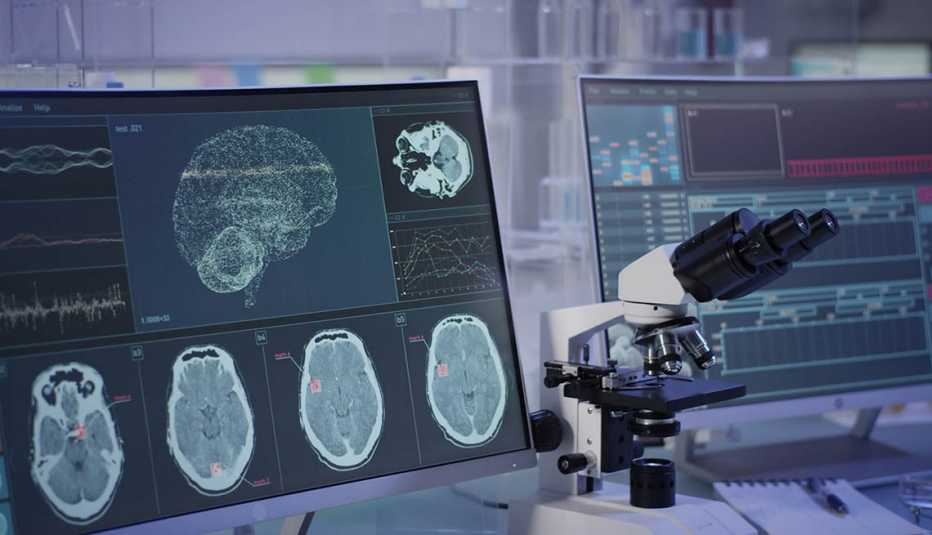Staying Fit


In an effort to advance innovation and inspire breakthroughs in Alzheimer’s disease treatments, the Alzheimer’s Disease Data Initiative (ADDI) announced on Nov. 17 a new platform that connects researchers from around the world and enables them to safely and securely share their data and discoveries with one another in one space. AARP is a partner in this project, called the AD Workbench.
“We want to not only help fund innovation, we want to speed research,” says Sarah Lenz Lock, senior vice president for policy at AARP and a member of the ADDI advisory board. “And that’s, frankly, a huge thing because we have members living with this disease right now. So by facilitating data exchange and the ability to use this information, we hope to come up with solutions sooner than we otherwise would.”


AARP Membership— $12 for your first year when you sign up for Automatic Renewal
Get instant access to members-only products and hundreds of discounts, a free second membership, and a subscription to AARP the Magazine.
Roughly 35 million people worldwide are living with Alzheimer’s disease, the most common form of dementia, and still, there is no drug or therapy that can stop or slow its progression — just medicines to help alleviate symptoms. That’s not for lack of effort, however. The past several decades have been marked by a series of scrapped treatments and failed clinical trials. But now the research pipeline is more diversified than ever, packed with new theories and targets that could hold the key — or at least a clue — to a cure.
What is ADDI?
In 2018, a coalition of partners, brought together by Bill Gates, formed the Alzheimer’s Disease Data Initiative (ADDI). ADDI aims to accelerate the use of data within Alzheimer’s disease and related dementias research by connecting researchers with the data they need to develop new and better treatments and diagnostic tools to fight the disease.
ADDI’s coalition of partners include AARP, Aridhia, the Alzheimer’s Association, Alzheimer’s Research UK, Biogen, Bezos Expeditions, Critical Path for Alzheimer’s Disease (CPAD) Consortium, Dementias Platform UK (DPUK), Fidelity Biomedical Research Initiative (FBRI), Gates Ventures, the Global Alzheimer’s Association Interactive Network (GAAIN), Medical Research Council UK, National Institutes of Health/National Institute on Aging, VOR AI and Wellcome Trust.
That’s where the ADDI’s AD Workbench comes in. As research teams test these novel theories and make progress on emerging pathways, they can share their findings with others over a cloud-based platform “so they don’t have to reinvent the wheel and they know what is out there,” Lock says. “The idea is that when researchers are able to share information, they can more quickly understand what works and what won’t work,” she adds.
Through the AD Workbench, researchers have the ability to import their datasets and combine and transfer data from other platforms. The tool also allows them to work with “anonymized data sets” that are otherwise unable to be transferred due to privacy regulations and to design personalized workspaces to analyze results.

































































More From AARP
Dementia's Gender Disparity: Report Uncovers Unique Challenges Facing Women
Plus, tips on how to reduce dementia risks and ease the caregiving burden10 Early Warning Signs of Dementia You Shouldn’t Ignore
How to spot early indicators that your loved one may have Alzheimer’s or dementia